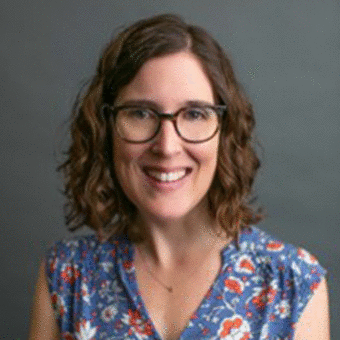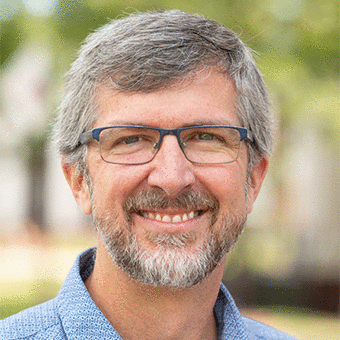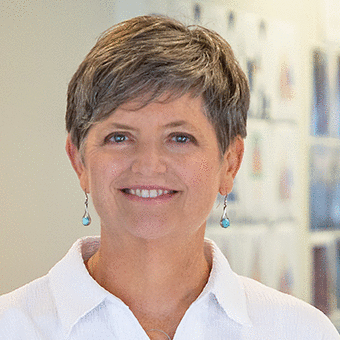- Integrated Planning
Integrated Planning
Integrated planning is a sustainable approach to planning that builds relationships, aligns the organization, and emphasizes preparedness for change.
- Topics
Topics
- Resources
Resources
Featured Formats
Popular Topics
- Events & Programs
Events & Programs
Upcoming Events
- Building Buy-in for Planning: Dealing With Resistance and Gaining Support
Online | March 11 – April 8 - Budgeting for Impact: A Working Group on Resource Planning in Higher Education
Online | Feb 5, Feb 19, March 5 - Cross-Functional Collaboration: Tools and Skills for Working Across Silos
Online | February 10, 17, 24
- Building Buy-in for Planning: Dealing With Resistance and Gaining Support
- Community
Community
The SCUP community opens a whole world of integrated planning resources, connections, and expertise.
- Integrated Planning
Integrated Planning
Integrated planning is a sustainable approach to planning that builds relationships, aligns the organization, and emphasizes preparedness for change.
- Topics
Topics
- Resources
Resources
Featured Formats
Popular Topics
- Events & Programs
Events & Programs
Upcoming Events
- Building Buy-in for Planning: Dealing With Resistance and Gaining Support
Online | March 11 – April 8 - Budgeting for Impact: A Working Group on Resource Planning in Higher Education
Online | Feb 5, Feb 19, March 5 - Cross-Functional Collaboration: Tools and Skills for Working Across Silos
Online | February 10, 17, 24
- Building Buy-in for Planning: Dealing With Resistance and Gaining Support
- Community
Community
The SCUP community opens a whole world of integrated planning resources, connections, and expertise.

Symposium
Mid-Atlantic Symposium | Facilities Strategies for Student Success: A Reprise of Top-Rated Sessions from SCUP MA 2019
November 12, 2019Richmond, VA- Event Home
- Program
- Registration
- Hotel & Travel
Overview
Where does academic achievement meet academic experience as it relates to facilities and space?
Join us as we share the top sessions from the SCUP 2019 Mid-Atlantic Conference, where we explored topics central to student success. These sessions include a look at centers for experiential learning and innovation, a living-learning campus innovation district that brings together sciences and the arts, and a case study in student-guided planning. Our event will culminate with a session on integrated campus planning and how higher education’s mission to deliver student success and student experiences can be achieved.
What will be covered:
- STEM and innovation centers
- Living-learning innovation districts
- Student-guided planning process
- Discussions about integrated campus planning
Skills you will gain:
- Identify the most impactful planning, design, and operational decisions affecting the long-term success of STEM and innovation centers.
- Describe how the design and programming of mixed-use, flexible, and shared learning spaces in a living-learning innovation district bring together a broad range of students, faculty, and strategic partners.
- Engage students in the building planning and design process by applying discovery techniques, design thinking, journey mapping, and purposeful facilitation techniques.
- Discuss how to approach campus planning in an integrated way, even in large, decentralized institutions.
Featured Speakers
VMDOVirginia TechAssistant Director for Academic and Experiential ProgramsVirginia Commonwealth UniversitySasakiAcademic TechnologistWashington and Lee UniversityOffice DirectorQuinn EvansUniversity of VirginiaProgram
SHOW: All Sessions Workshops Tours Planning Institute WorkshopsTuesday, November 12, 20198:00 am - 8:45 amRegistration & Breakfast8:45 am - 9:00 amOpening RemarksPresented by: Jeff Eastman, University Planner, Virginia Commonwealth University
9:00 am - 10:15 amInspiration, Realization, and Cross-disciplinary Success – Centers for Experiential Learning and InnovationPresented by: Charles Piper, AIA, LEED AP | Dave Pfaff | Mary-Chris Escobar
This session will explore in-depth case studies of two interdisciplinary centers for STEM learning, innovation, and entrepreneurship, one at a leading liberal arts college (Washington and Lee University), and the other at a large research university (Virginia Commonwealth University). Leaders involved in the planning, design, operation, and evolution of two successful STEM and innovation centers will share the most impactful decisions affecting the long-term success of their work, including how location, governance, funding, programming, and promotion influence dynamic interdisciplinary results.
Learning Outcomes
- Summarize the characteristics of on- and off-campus facilities, locations, and partnerships that make authentic interdisciplinary engagement and collaboration viable.
- Explain common operational and funding models for interdisciplinary centers that best assures student success and university progress.
- Plan a variety of programming and promotional activities to spur openness and collaboration between disciplines and to improve meaningful student, faculty, and community participation in an interdisciplinary center.
- Describe design strategies that support student success in interdisciplinary centers for innovation and STEM learning.
10:15 am - 10:30 amBreak10:30 am - 11:45 amBeyond Boundaries: How Living-Learning Fuses Creativity, Innovation, and the ArtsPresented by: Joe Atkins, VMDO | Van Coble, VT | Greg Havens, Sasaki
Virginia Polytechnic Institute and State University’s (Virginia Tech) Creativity and Innovation District (CID) is a trans-disciplinary nexus drawing together students, faculty, and external partners while aligning collaborative facilities, resources, tools, and technologies that will enable it to thrive as a living-learning environment. In this session, we will share explicit, purposeful strategies for how to administer shared academic, arts, and campus life programs that foster interdisciplinary inquiry.
Learning Outcomes
- Describe how the design and programming of mixed-use, flexible, and shared learning spaces bring together a broad range of students, faculty, and strategic partners.
- Summarize how different types of spaces contribute to an innovation district, including collaboration hubs, fusion labs, maker spaces, art studios, and performance venues that showcase education, demonstration, and research.
- Describe how the design of residential living-learning communities can bring people together across disciplines to pursue formal and informal projects.
- Summarize how different departments and divisions effectively administrator and share spaces within an innovation district.
11:45 am - 12:30 pmLunch12:30 pm - 1:45 pmStudent-Guided Planning at UVA: True Partnerships Between Students, Administrators, and ConsultantsPresented by: Dick Minturn, UVA | Marsh Pattie, UVA | Caroline West, UVA | D’Andre Willis, HGA
How can we authentically engage students to make a positive impact on their environment? We will show how the planning and design process at the University of Virginia’s (UVA) Student Activities Building made students a co-equal partner, used social science tools to identify what students valued, and amplified students’ ability to guide design. You will learn how to engage students at your institution by applying discovery techniques, design thinking, journey mapping, and purposeful facilitation techniques to traditional programming and design problems.
Learning Outcomes
- Align student engagement practices in facilities planning with an institution’s broader student leadership philosophy.
- Identify the appropriate student groups to engage in a building’s planning and design process.
- Assess opportunities to further student input by integrating building programming and planning projects with student academic work and student leadership programs.
- Use powerful discovery tools (journey mapping, surveys, focus groups, immersive engagement, town halls, committee work) to identify and quantify what students want in a building’s design
1:45 pm - 3:00 pmIntegrated Campus Planning and Roundtable DiscussionPresented by: Russ Uzzle
Russell (Russ) Uzzle recently retired after spending 18 years as the university planner at Virginia Commonwealth University (VCU). During his tenure, the university experienced unprecedented enrollment, programmatic, and physical growth, resulting in over a billion dollars in new construction and renovation projects. As an urban university of approximately 60,000 faculty, staff, and students, VCU continues to provide a challenging environment for planning and coordination of its many initiatives.
Russ was responsible for overseeing and guiding two university-wide master plans, precinct studies, and numerous facility planning and programming studies. He was responsible for developing and coordinating issues related to transportation, historic preservation, and emergency preparedness, and development issues related to the university’s program expansion into the urban landscape.
Russ was a principal liaison with university leadership, stakeholder groups, and with the City of Richmond on issues relating to facility planning. He was an active member of SCUP and an enthusiastic guest lecturer for various campus groups. A native of Raleigh, NC, he is a graduate of East Carolina University and Virginia Tech.
3:00 pm - 4:30 pmCampus TourRegistration
On-site registration will be available.
Special Group Membership Discount: If you work at a college or university that holds a SCUP group membership anyone from your institution can attend this event at the member rate.
Cost
US Dollars Member $115 Non-Member $175 Deadlines
Date Cancellation 10/29/2019 Pre-Registration 10/29/2019 *Cancelations must be made in writing and may be submitted by email to your registration team registration@scup.org by 10/29/2019. Refunds are subject to a $25 USD processing fee. No-shows are not eligible for a refund, and funds committed by purchase order must be paid in full by the first day of the event. Refunds will be issued within 30 days of received written notification. Badge sharing, splitting, and reprints are strictly prohibited.
SCUP Photo Policy
Attendance at, or participation in, any workshop or conference organized by the Society for College and University Planning (SCUP) constitutes consent to the use and distribution by SCUP of the attendee’s image or voice for informational, publicity, promotional, and/or reporting purposes in print or electronic communications media. Video recording by participants and other attendees during any portion of the workshop or conference is not allowed without special prior written permission of SCUP. Photographs of copyrighted PowerPoint or other slides are for personal use only and are not to be reproduced or distributed. Photographs of any images that are labeled as confidential and/or proprietary is forbidden.
Hotel Information
NOTE: SCUP does not have a discounted block at any of the following hotels nor does SCUP endorse any of these hotels.
Graduate Richmond
301 West Franklin Street
Richmond, VA 23220
413.821.3323
Approximate 0.3 miles from VCUQuirk Hotel
201 West Broad Street
Richmond, VA 23220
844.757.8475
Approximately .4 miles from VCUTravel Information
Conference Location
Cabell Library
Cabell Room 303
Virginia Commonwealth University
901 Park Avenue
Richmond, VA 23284Airport
Richmond International Airport
Approximately 11 miles from Virginia Commonwealth UniversityDriving Directions
- Topics
- Topics










